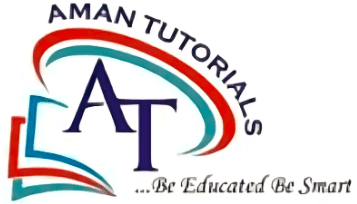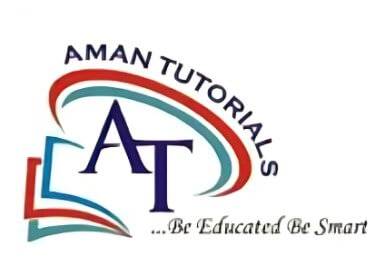In today’s fast-paced world, one-size-fits-all education doesn’t always meet the diverse needs of students. Personalized education has emerged as a powerful alternative, allowing students to learn in ways that best suit their individual strengths, needs, and goals.
This approach, which adapts teaching methods and content to each student, has gained popularity for its ability to foster deeper engagement and boost academic success.
Here’s a look at the top 10 benefits of personalized education and why it’s becoming a preferred approach for modern learners.
1. Individualized Learning Pace
Every student learns at a different pace. Some excel in certain subjects and need extra time in others. Personalized education respects this natural variation, allowing students to take the time they need without pressure or judgment. By working at a pace that suits them, students are less likely to feel overwhelmed and more likely to truly understand the material.
2. Enhanced Engagement and Motivation
When students feel that their learning experience is tailored specifically for them, they’re more likely to be engaged and motivated. Personalized education often involves hands-on activities, projects, and real-world applications, which make learning more relevant and interesting. This kind of meaningful engagement can turn reluctant learners into enthusiastic ones.
3. Focus on Strengths and Interests
Personalized education enables students to delve deeper into subjects they enjoy or areas where they excel. By allowing students to play to their strengths, personalized learning boosts confidence and fosters a sense of accomplishment. Furthermore, it encourages students to pursue their interests, potentially guiding them toward future career paths or lifelong passions.
4. Improved Academic Outcomes
When students learn in ways that align with their individual needs, they are more likely to perform well academically. Personalized education addresses specific weaknesses and reinforces strengths, ensuring that students achieve a well-rounded understanding of each subject. This often translates to better grades and a more positive attitude toward academics.
5. Development of Self-Directed Learning Skills
In a personalized learning environment, students often have more control over their learning journey, which teaches them important self-directed learning skills.
They learn how to set goals, manage their time, and stay organized, which are essential skills not only for school but also for lifelong learning. This independence helps them develop resilience, responsibility, and a proactive mindset.
6. Greater Confidence and Self-Esteem
Personalized education allows students to progress in a non-competitive environment, where the focus is on their personal growth rather than comparison with others. This approach builds confidence, as students can see their own progress and feel proud of their achievements.
With improved self-esteem, they’re more willing to take on new challenges and push their boundaries.
7. Better Teacher-Student Relationships
In personalized education settings, teachers and tutors often work closely with students to understand their needs, preferences, and goals. This fosters stronger relationships, as educators can provide more meaningful guidance and encouragement.
When students feel understood and supported by their teachers, they’re more likely to participate actively and ask for help when they need it.
8. Adaptation to Learning Styles
Students have different learning styles: some are visual learners, while others learn better through hands-on experiences or auditory methods.
Personalized education allows for flexibility in teaching methods, using a mix of visuals, interactive exercises, or verbal explanations based on what resonates best with each student. This tailored approach makes learning more effective and enjoyable.
9. Reduced Stress and Anxiety
In a traditional classroom, students can feel pressured to keep up with their peers or fit into a rigid learning structure. Personalized education reduces this stress by providing a supportive, flexible environment where students can focus on their personal progress. This reduces the anxiety that comes from comparison or fear of failure, creating a healthier approach to learning.
10. Preparation for Real-World Success
Personalized education isn’t just about academic achievement—it’s also about preparing students for life outside the classroom. By encouraging self-directed learning, critical thinking, and problem-solving, this approach equips students with skills that are valuable in the workplace and beyond.
Students who learn in personalized environments are often better prepared to adapt, innovate, and succeed in real-world situations.
Conclusion
Personalized education offers a dynamic, student-centered approach that adapts to the needs, strengths, and interests of each learner.
By fostering engagement, boosting confidence, and developing essential life skills, it’s an effective way to prepare students not only for academic success but also for a fulfilling future.
As more educators and parents recognize these benefits, personalized education is shaping the way students learn, thrive, and achieve their potential.
Categories
- Blog (82)
- English (2)
- Forex News (1)
- Lessons (1)
- melhores-3 (1)
- Shelly (1)
- Teachers (2)
- test (1)
Latest Posts
Goldene Gewinne locken Navigiere deine m December 25, 2025
Fortune Favors the Bold – Download chi December 25, 2025
Fortune Favors the Bold Master the Chick December 25, 2025
Recent Comments
Archives
Calendar
| M | T | W | T | F | S | S |
|---|---|---|---|---|---|---|
| 1 | ||||||
| 2 | 3 | 4 | 5 | 6 | 7 | 8 |
| 9 | 10 | 11 | 12 | 13 | 14 | 15 |
| 16 | 17 | 18 | 19 | 20 | 21 | 22 |
| 23 | 24 | 25 | 26 | 27 | 28 | 29 |
| 30 | 31 | |||||

